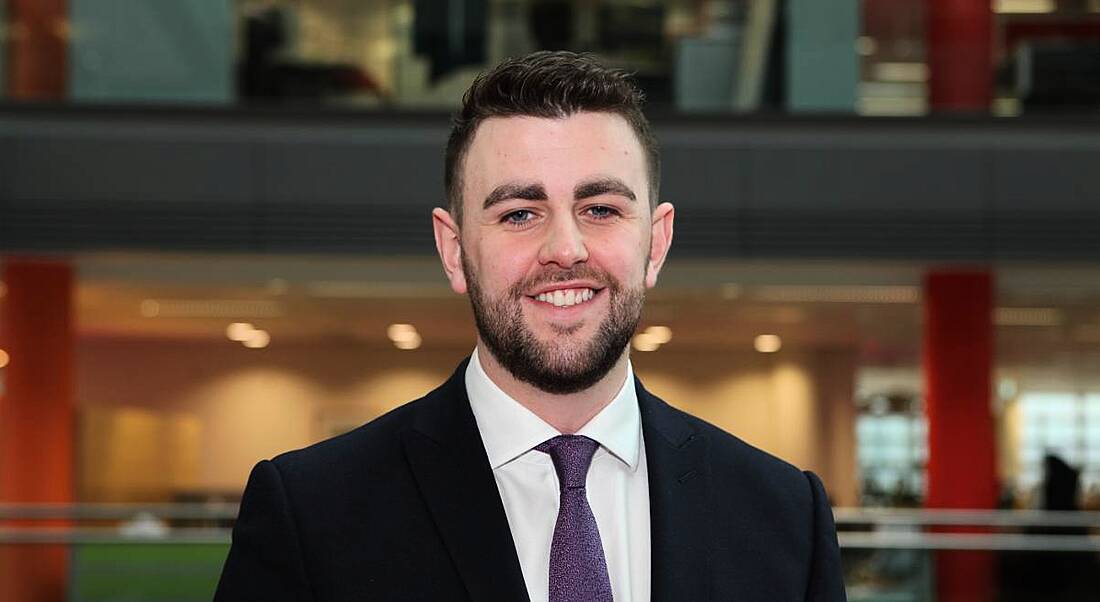Shane McCallion was a little worried that his business background would not necessarily serve him when first becoming part of a technology consultant group at PwC. He was pleased to find this fear to be totally unfounded.
One of the most common misconceptions about the tech industry is that you need to have a narrow and particular skillset to enter into it. Indeed, it is becoming readily apparent with time how untrue this notion is.
The contours of the tech industry mean that there truly is a place for everyone to respond to its diverse and far-reaching needs.
Shane McCallion felt trepidation when first being onboarded to a technology consultancy group at PwC due to the fact that he comes from a business background. However, he quickly realised that his skills were a very necessary contribution to the tech ecosystem. We spoke to McCallion about his experience as a graduate working with PwC and the marriage of business and technology.
What did you study in college?
I studied commerce in UCD before completing a master’s in management consultancy in UCD Michael Smurfit Graduate Business School.
With this programme, are you now working in your desired industry?
Yes, I work for the technology consulting team, which sits in advisory in PwC.
What drew you to PwC when you were seeking work as a graduate?
I applied to multiple graduate positions in semester one of my master’s degree. PwC was by far the most proactive in meeting with applicants via career fairs, skills courses and CV workshops on site.
It also had the most impressive application process and was the most personable and approachable of all companies that I spoke with at this time.
The turnaround from the final interview to a phone call from a partner, through to receiving an offer, was two days. I found this incredibly efficient, and it contrasted hugely from other application processes I’d been through with other companies.
What expectations did you have before you began the programme?
To be honest, I expected to feel a little lost in the company as it is a large organisation. This couldn’t have been further from the truth. The onboarding process is excellent and the entire department is welcoming and receptive to any questions or queries, and meeting for coffee or a beer.
I also expected to be at a disadvantage on the technology consulting team, having come from a business background in college. What I have actually found is that there is far more to a technology project than just the technology itself – stakeholder engagement, business strategy, project management and change management all play key roles in our typical technology consulting engagements.
What duties and responsibilities were you given initially?
My first two projects were enterprise architecture assessments for two different clients. One was a large public sector body, the other was a credit reporting agency. There were two of us on the team, myself and a senior manager, so I was immediately participating in workshops with very senior client representatives. I was initially tasked with documenting the projects – preparing workshop packs, recording meeting notes, key decisions made, and following up with any queries etc.
Did the scope of your work change as the programme progressed?
For those two initial projects, when I became familiar with the process, I was expected to help with compiling the final report for each assessment.
More broadly, I have found that with more experience comes more expectation to provide input into projects that we deliver.
Can you describe a typical day in your role?
Currently, I am working with a client to help them prepare for GDPR. My daily role involves supporting the IT and compliance departments, and preparing the business for the technology and process changes that will result from this law.
How do your responsibilities compare to more experienced employees’?
I have not seen a huge difference in the actual content or duties expected of me; the difference lies in the responsibility and the ownership of your work.
Typically, a graduate could end up working directly with a manager or a senior manager, but the more experienced employee is the owner of the work produced. They will present it back to the client in the form of a presentation and/or report and take any questions or queries.
As a graduate, you are expected to take charge of your own career development. For managers and above, there is also an expectation that they develop and lead the team around them.
Do you feel more prepared for working life after completing this programme?
Definitely. Each skill and behaviour that the programme focuses on developing is applicable to almost all career scenarios. Career development plans are part of our annual activities, and these plans encompass technical skills and qualifications, business and leadership skills, and interpersonal development.
Why should someone apply to the graduate programme at this company?
If you want to work in a project-based environment with talented colleagues and constant development, you should apply to this programme.
PwC does not sell any physical goods or manufacture any products – it offers the experience and behaviours of its people. This brings a responsibility to develop its employees in a world-class manner.
There are multiple career paths within PwC, ranging from technology implementation to business strategy to finance transformation. You will have the opportunity to experience a broad overview of each of these as a graduate and develop a career plan to pursue one or more of these, depending on your own interests and skills.




